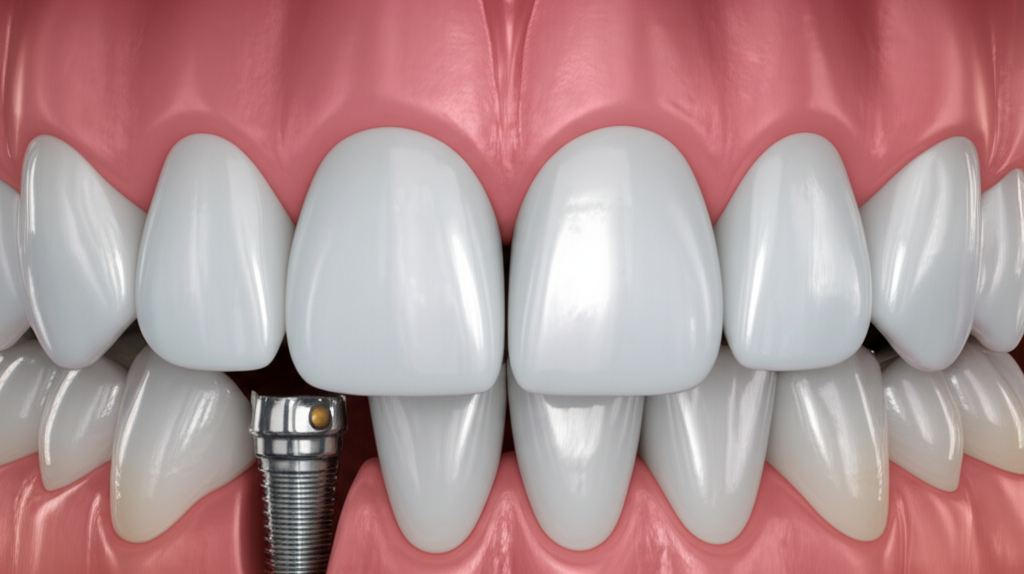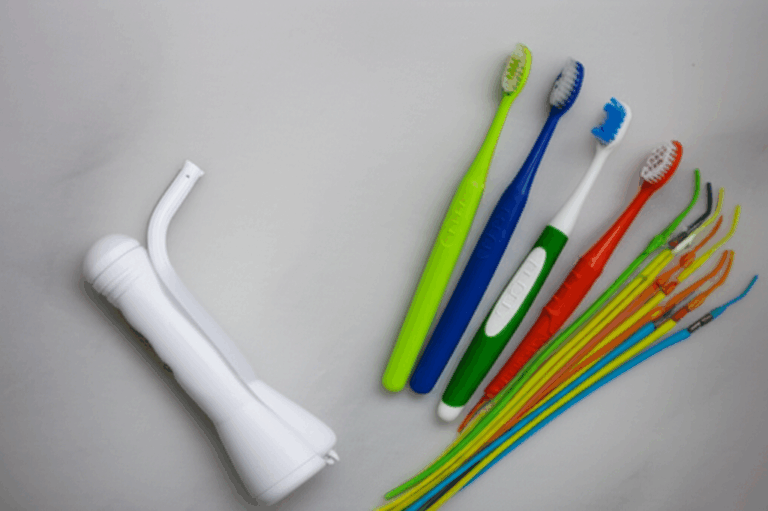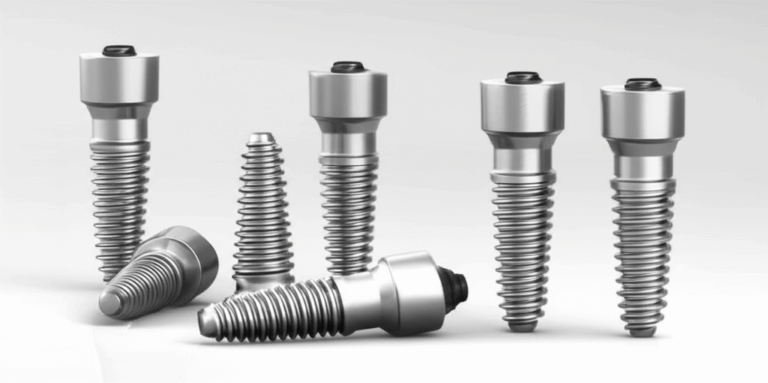
How Long Do Dental Implants Last? My Honest Experience and What You Need to Know
Table of Contents
- The Implant Fixture (Post/Screw)
- The Abutment
- The Dental Crown or Restoration
- Oral Hygiene and Home Care
- Dental Visits and Professional Cleanings
- Your General Health and Lifestyle Habits
- The Quality of Materials and Implants
- Dentist Experience and Implant Placement Skill
- Bone Quality and Quantity at the Site
- Where the Implant Sits in Your Mouth
Introduction: My Journey Into Dental Implants
I still remember how nervous I was the first time my dentist brought up dental implants. I never thought I’d lose a tooth, but there I was – thinking about my choices, the cost, and hoping for something that would last. Over the years, after lots of research, asking tough questions, and my own experience (plus talking with a few friends who got them before I did), I’ve learned a lot about what dental implants really are and how long they last.
If you’re in the same situation, you’re probably thinking: “Are dental implants really permanent?” “Are they worth the money?” “What could go wrong, and how can I make sure mine last for a long, long time?” I asked all these questions myself, and now, I want to walk you through everything I learned – from how long each part lasts to what makes implants work – and what makes them fail.
So, let’s get started. If you’re thinking about implants or just want to take care of the ones you have, this guide is for you.
What Exactly Are Dental Implants?
Before we talk about numbers, let me explain it simply. When I first heard “dental implant,” I imagined something big and scary, but the truth is pretty simple.
A dental implant is a lot like a real tooth. It’s made of:
- The implant fixture (the post or screw): Usually made of titanium or, sometimes, zirconia. This part is put into your jawbone.
- The abutment: This small connector piece joins the implant post to the crown you can see.
- The crown or restoration: This is the “tooth” part you see when you smile.
Dental implants are not the same as dentures or bridges. They are a permanent solution that actually saves the bone in your jaw and feels like your own tooth.
How Long Do Dental Implants Last? The Real Numbers
When I started asking around, I heard all kinds of things: “They’ll last forever!” “You’ll need to replace them in a few years!” The real answer is a bit more detailed and depends on which part you’re talking about. Let’s break it down.
The Implant Fixture (Post/Screw)
This is the base for the whole thing. Made from body-friendly materials like titanium or sometimes zirconia, the post is made to join with your jawbone in a process called osseointegration. Once it’s healed, that post can last for decades—and for many people, a lifetime.
For example, I read about people who still had their first implant posts after 20, 30, even 50 years! Now, not everyone gets that long out of them, but studies show that 95–98% of them are still good after 10 years, and close to 90–95% even after 20 years. Pretty impressive.
The Abutment
The abutment is strong, but it works harder than you might think. It connects the crown to the post, handling the pressure from daily biting and chewing. Sometimes, after a decade or so, the abutment might need to be adjusted or even replaced because of wear, especially if your bite isn’t perfectly straight or if you grind your teeth. That said, in my experience, it’s pretty rare for abutments to break or fail.
The Dental Crown or Restoration
This is where things can be different for everyone. Dental crowns can last anywhere from 5 to 20 years. The average I’ve seen—and what my dentist told me—is around 10–15 years before you might need a new one.
Why such a big difference? It really comes down to a few things:
- Material: Porcelain, zirconia, and ceramic crowns usually last longer than cheaper ones.
- Bite force: If you clench or grind your teeth at night, you’ll put more stress on the crown.
- Your care routine: Good oral hygiene keeps the crown in good shape for longer.
My own crown has lasted almost ten years with no problems. I’m very careful about brushing, flossing, and seeing my dentist regularly, plus I paid for a stronger material. That all makes a difference.
The Top Factors That Influence How Long Implants Last
You might be wondering, “Why do some implants last a lifetime, while others fail early?” After looking into the research and living with an implant myself, I can say how long they last really depends on how well you treat your mouth—and a few other key things.
Oral Hygiene and Home Care
If you remember nothing else, remember this: daily brushing and flossing are a must-do for your implants to succeed.
Peri-implantitis—which is like gum disease for implants—can form around implants if you don’t keep them clean, just like with real teeth. I use a water flosser and special implant floss, and my dentist says to use a gentle toothpaste. Small changes, big difference.
Dental Visits and Professional Cleanings
Visiting the dentist twice a year is the least you should do, in my opinion. Professional cleanings get to spots you miss, and checkups can find issues before they become a big deal. At one visit, my hygienist saw some early redness near my implant. Changing how I brushed and getting an extra cleaning stopped a bigger problem before it could start.
Your General Health and Lifestyle Habits
This is the part that surprised me. Your lifestyle choices make a difference:
- Smoking: If you smoke, your chances of implant failure go way up, by as much as 4 times. The facts are clear, and after seeing a friend have a hard time healing, I believe it.
- Chronic conditions: Diabetes and autoimmune disorders can slow healing or affect your bone quality.
- Medications: Some drugs, like bisphosphonates, can affect your bone health.
- Teeth grinding (bruxism): Ask your dentist about a night guard. Trust me, it saves money (and pain) in the long run.
- Diet: Sticky and hard foods can chip or loosen crowns.
The Quality of Materials and Implants
Just like you wouldn’t buy the cheapest tires for your car, you don’t want super-cheap implants. Good brands and quality materials—like titanium from a certified implant dental laboratory—are key for making them last a long time. I made sure to talk with my dentist about which brands they use and why.
Dentist Experience and Implant Placement Skill
I learned the hard way that not all dentists are the same when it comes to implants. A good oral surgeon or specialist is very important. Placing it in the exact right spot, carefully checking your bone, using tools like cone beam CT scans…these are all things you should expect from a good dentist. One small mistake at the start can create problems for years.
Bone Quality and Quantity at the Site
Having enough bone is the foundation for any successful implant. If you have bone loss, you might need a bone graft or sinus lift before it’s placed. I had a small bone graft myself—it wasn’t a big deal, but it made sure my implant had a strong home.
Where the Implant Sits in Your Mouth
Back teeth take more pressure than front teeth. Molars in the upper jaw often have softer bone, so the chances of success are a little lower (but still very high, over 90%). Knowing this, I’m extra careful when I chew to avoid problems.
How to Make Your Dental Implants Last as Long as Possible
When people ask how I keep my implants in great shape, my answer is always about being consistent and stopping problems before they start. Here’s what works for me:
Great Oral Hygiene Every Day
- Brush at least twice a day. I also use an electric toothbrush.
- Floss daily. If you hate string floss, try a water flosser made for implants.
- Rinse with germ-killing mouthwash if your dentist suggests it.
- Choose gentle toothpaste to protect both your crowns and your natural teeth.
Never Skip Dental Appointments
- Visit your dentist every six months—or more if they tell you to.
- Get professional cleanings that are specifically for implants.
- Finding problems early means fixing them early.
Stop Grinding and Bad Habits
- If you clench or grind, get a night guard made just for you from a reputable night guard dental lab. It saved my crown!
- Don’t use your teeth as tools. Keys, bottles, that stubborn tag—just don’t.
Live a Healthy Lifestyle
- If you smoke, now’s the time to quit. Your gums and implants will thank you.
- Keep a close watch on conditions like diabetes or osteoporosis.
- Eat a diet that’s easy on your teeth.
Say Something as Soon as You Notice a Problem
- Pain, swelling, bleeding, or a loose crown is a real problem. Get it checked. I found a loose crown early, and it just needed a quick tightening—not a replacement.
How Can You Tell If a Dental Implant Is Failing?
Nobody wants surprises, but problems can show up when you don’t expect it if you aren’t looking for the signs. Here’s what I always watch out for:
- Pain or discomfort at the site that doesn’t go away (don’t ignore it—see your dentist)
- Swelling, redness, or bleeding near the implant
- Gums pulling back, showing the metal part of the implant or abutment
- A “wobbly” crown or implant that moves when you push on it
- Bad taste or breath even after brushing (could be an infection)
- Trouble chewing on that side of your mouth
If you notice any of these, don’t ignore them. Acting fast can turn a big problem into a small one.
What Happens When an Implant Fails? My Realistic Take
Implant failure sounds scary, but it’s usually rare—and in many cases, there are options. In my experience, most failures happen either early (within a year) or much later, because of infection or too much pressure.
- Early failure often means the post didn’t join with the bone (osseointegration failed), sometimes because of health issues, smoking, or poor bone quality. An infection can also happen if germs get in soon after surgery. The fix? Sometimes medicine works, but often the implant needs to be removed, with a chance to try again once the infection is gone.
- Late failure is often the one that happens slowly—think years later, thanks to peri-implantitis (an infection like gum disease), pressure from grinding your teeth, or even an injury (a baseball to the face, in one friend’s case). Treatment depends on the cause: cleaning, medicine, or in rare cases, removing it and getting a new implant after the bone heals.
I’ve personally seen friends have an implant replaced and the new one has lasted for just as many years. It’s not the end of the world, and new dental technology makes it easier to handle these problems. Just remember, acting fast and having a good dentist are your safety net.
Dental Implants Compared to Other Tooth Replacements
One question I asked myself was, “Why spend so much time, money, and effort on an implant? Are they really that much better than bridges or dentures?”
Here’s what my research—and my own experience—tell me:
Dental Bridges
- Last on average: 5–15 years.
- Bridges need healthy teeth on each side to be shaved down to hold the “bridge.”
- You’ll often deal with gums pulling back and maybe cavities later on those anchor teeth.
- Eventually, you usually have to replace bridges.
Dentures
- Replace one tooth, several teeth, or all of them.
- They need to be refitted or replaced every 5–10 years because your jawbone changes and they wear out.
- Can move around, make your gums sore, and make it hard to eat or talk.
Dental Implants
- The post can last decades—something you can almost “set and forget” if you care for it.
- Crowns need to be replaced sometimes, but not as often as bridges or dentures.
- Implants save your jawbone, stop your face from sagging, and let you chew almost like normal.
After trying a partial denture in college, then getting an implant later, I wouldn’t go back. The stability, comfort, and peace of mind? Worth every penny.
Real Data: Longevity, Success Rates, and Risks
I know stories are helpful, but I’m a numbers person, too. Here’s what the studies show, plus my thoughts.
| What’s Measured | Data/Range | Quick Takeaway |
|---|---|---|
| Implant fixture success (10 years) | 95–98% | Most implants will still be strong after a decade. |
| Implant fixture success (15–20 yrs) | 90–95% | They keep lasting well into 2 decades. |
| Crown/restoration lifespan | 10–15 yrs average (5–20 yrs range) | This is the part you’ll probably need to replace first. |
| Success (lower jaw) | 97–98% | Lower jaw implants have a slightly better success rate. |
| Success (upper jaw) | 90–95% | Still great odds, even with softer bone. |
| Impact of smoking | 1.5–4x higher failure rate | Smoking is a serious risk—don’t ignore it. |
| Early failure (year one) | 1–5% | Careful planning is most important here. |
| Late failure (per year after year 1) | Under 2% | Most problems happen early, but late issues can be managed. |
| Longest known implant lifespan | Over 50 years (rare, but real cases) | Yes, they really can last a lifetime! |
Sources: Data shows general trends from dental studies and expert opinions.
Final Thoughts: Are Dental Implants Worth It?
If you’ve made it this far, you know dental implants are a bit complicated, but they are very rewarding. In my own story, implants didn’t just fix my smile, they gave me back my confidence and the ability to eat everything I love. They do cost more at the start, and yes, you’ll need to replace the crown eventually. But the benefits—saving your bone, being stable, feeling natural, and lasting a long time—make implants, in my eyes, a real investment in your long-term health.
If you’re thinking about an implant and want to learn more about materials, you might want to check resources like a zirconia lab or a dental ceramics lab to look at your choices for the crown. For a simple summary of common challenges, see this helpful list of dental problems.
In the end, my advice is simple: choose a surgeon with a lot of experience, ask a lot of questions, take care of them every day, and don’t think of dental visits as optional. Whether you already have implants or are just thinking of getting them, the effort is worth it in the end—sometimes for a lifetime.
If you have more questions that I didn’t answer here, please reach out. These are big decisions, but you’re not alone—I’ve been there, and I hope my story helps you make the best choice for yourself.








